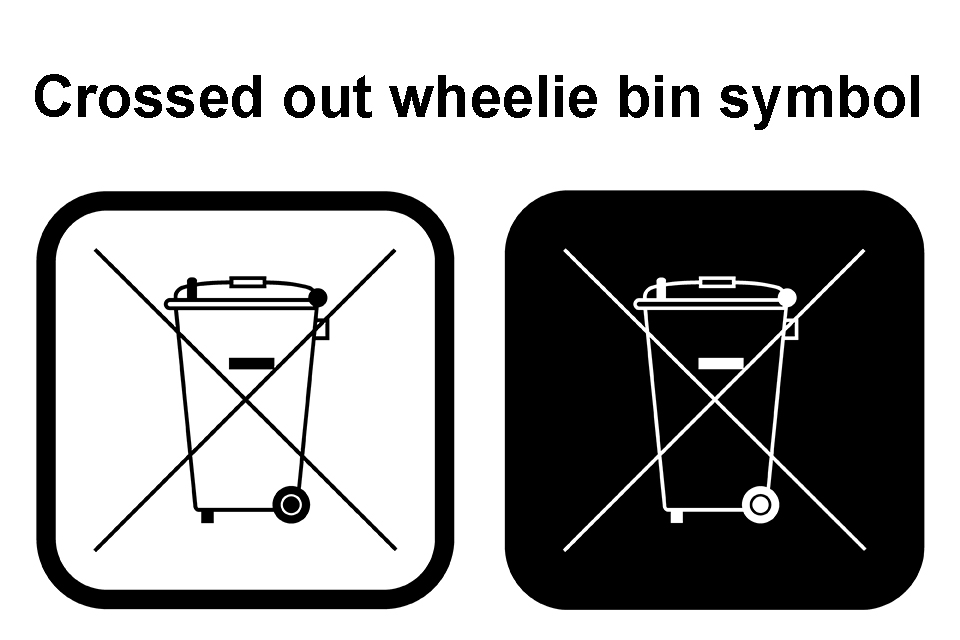Consumer products: recycling batteries and electrical waste
Information for consumers.
All batteries and electrical products should display the ‘Crossed out wheelie bin’ symbol shown below. This means they should not be put into your household rubbish when they no longer work or are no longer wanted. Instead, they should be taken to an appropriate collection point for recycling.

Why bother doing this? The two main reasons are that waste batteries and electrical products:
- can leak toxic chemicals into the environment if they end up in a landfill site, the final resting place for a lot of household rubbish
- can be processed at a recycling plant to extract metals and other valuable resources for new products
There’s also a safety issue to bear in mind, as some types of battery (lithium-ion) can catch fire if dumped in your rubbish bin, particularly if they get wet or are damaged.
Recycling batteries
You can take most waste batteries to your local supermarket, or any other big shop nearby that sells over 32 kg of batteries a year. There should be a collection point at the premises for ‘portable’ batteries. These include AAA, AA and 9V batteries, battery packs, button batteries and rechargeable batteries, which can be found in a huge range of products.
Basically, all batteries apart from those designed for vehicles or industrial use can be dropped off for recycling this way. (The terminals of lithium batteries should ideally be taped up first, to prevent any risk of fire.) The one exception is where the battery is part of the device and cannot be taken out, in items such as calculators and e-cigarettes. These need to be treated as electrical products.
Recycling electrical products
You can take waste electrical products to your local household waste recycling centre (where they should be segregated from other types of waste).
Alternatively, if you are buying a new electrical product, the retailer must accept the old one for free, on a like-for-like basis. This is regardless of whether you purchase the product online or in a store.
Retailers should also accept small items (less than 25 cm on the longest side) for free without the requirement to purchase a new product, if their sales area for electrical and electronic equipment is more than 400 square metres.